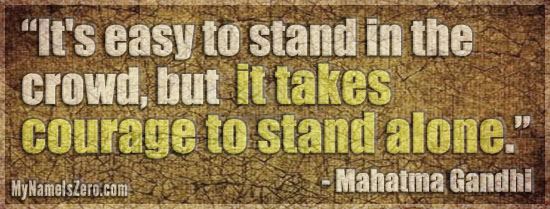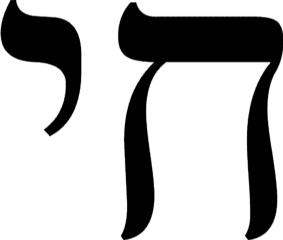This past week I received news of a friend and brother in Yeshua who had a heart attack and went home to be with the Lord on July 2, 2015. His name is Kaan Koryurek and he was barely 48 years old. Kaan was a Turk and he lived in Istanbul,Turkey with his wife Aleksandra. Although Kaan was raised in Turkey in a traditional Muslim culture, Kaan came to faith in Yeshua as a young adult and lived an extraordinary life for the sake of his faith. He was the first in his family to become a believer in Yeshua and in a Muslim country this is one of the most dishonorable decisions that one can make.
Kaan was well-educated, having achieved a Masters degree from an American university, and had a prestigious job, having worked at his father’s firm, a business consulting company. Kaan had everything that this world had to offer and lived at a high standard of living in Istanbul. Despite his educational accomplishments, successful career, and worldly comforts Kaan lived his life fully for his Master and Messiah, Yeshua.
I first met Kaan in 2001 when he was recently appointed as pastor of the Beshiktash Protestant Church, a small but flourishing congregation in Istanbul. Kaan was a gracious, compassionate, and humble man of God. Kaan stood firm in his faith against all the social and family pressures around him. Kaan was often ridiculed and mocked for his faith in Yeshua both in newspaper and television media. Kaan defended the gospel and stood up for his faith in Yeshua at every turn. Kaan truly lived his life for an Audience of One!
For Whom are we Living our Lives?
Whenever I hear of a friend, a relative, or a loved one who has died I am always reminded to consider the questions of life and death. I consider the reason for my existence and I question how I’m investing my time and energy.
We make decisions everyday that affect eternity. We make decisions everyday in relation to our family, friends, co-workers, boss, company, community, society, the nation in which we live, and the God whom we serve. What is the foundation by which we base our decisions? For whom are we living?
Watch this video to view a short summary of this week’s Torah Portion commentary
Pinchas
The title of this week’s Torah Portion is Pinchas (“Phinehas” in English). Pinchas, just like my friend Kaan, is an example to all of us of what it means to live one’s life fully for God, to live for an Audience of One.
Pinchas was the son of Eleazar, the son of Aaron the priest. At the end of last’s week’s Torah Portion (Num. 25:1-9) the daughters of Moab and Midian came out to invite and entice the sons of Israel to the sacrifice of their gods (Baal Peor) and to commit acts of sexual immorality. The daughters of Moab and Midian succeeded and many of the Israelite men went with the women. The LORD’s anger burned against Israel and God commanded Moses to strike down all of the leaders of the Israelites (Num. 25:1-5).
Moses obeyed the LORD and commanded the judges of Israel to kill the men who had joined themselves to Baal of Peor. While the children of Israel were weeping at the doorway of the tent of meeting because of yet another sin and calamity that had come upon them, a certain man of Israel named Zimri brought a Midianite woman named Cosbi into a tent of his relatives before the eyes of Moses and the whole congregation. From the text, it seems that everyone was in shock at what was happening. How could this Israelite be so brazen in his sin as the whole congregation was being judged by God?
It was at this moment that Pinchas alone rose up, grabbed a spear, and went in to the place where Zimri the Israelite had brought the woman. Pinchas killed both of them with the spear and brought an end to the plague of the LORD in the camp of the Israelites (Num. 25:6-9). A total of 24,000 Israelites died from the plague of the LORD.
Pinchas acted alone in his striking Zimri and Cosbi. He rose up and made a swift decision based on what he knew to be right and pleasing in the eyes of God. It didn’t matter what his family thought, what his father (who was the high priest) thought, or the opinion of the whole nation of Israel. Pinchas acted for the sake of God alone. We know this not only from the fact that the plague which God had sent among the Israelites was stopped, but also by the very words of blessing from the LORD for Pinchas, which are recorded for us at the beginning of this week’s Torah Portion:
Then the LORD spoke to Moses, saying, “Phinehas the son of Eleazar, the son of Aaron the priest, has turned away My wrath from the sons of Israel in that he was jealous with My jealousy among them, so that I did not destroy the sons of Israel in My jealousy. Therefore say, ‘Behold, I give him My covenant of peace; and it shall be for him and his descendants after him, a covenant of a perpetual priesthood, because he was jealous for his God and made atonement for the sons of Israel.’” – Num. 25:10-13
Pinchas lived his life for an Audience of One, the LORD God, and that One spoke up and honored him when he acted in a manner which pleased the LORD. The LORD told Moses that Pinchas was jealous with God’s jealousy. The zeal which Pinchas had for God led him to do what he did and God was pleased. The LORD in turn gave to Pinchas God’s covenant of peace and the perpetual priesthood through his descendants. Pinchas honored God with his life, at the possible cost of family and friends, and as a result God honored him.
Others Who Lived for an Audience of One
There are few more examples in this week’s Torah Portion that I’d like to highlight of those who truly lived their lives for an Audience of One. The first example is actually an unspecified number of brothers called the sons of Korah.
Korah is the famous leader of the rebellion with the 250 men of renown who came against Moses and Aaron, as recorded in a previous section of the Torah (Num. 16). Moses warned the children of Israel to get back from the tents of the men who were part of this rebellion, including the three main leaders; Korah, Dathan, and Abiram (Num. 16:25-26). The Bible then records how the people reacted to this:
So they got back from around the dwellings of Korah, Dathan and Abiram; and Dathan and Abiram came out and stood at the doorway of their tents, along with their wives and their sons and their little ones. – Num. 16:27
The people separated themselves from around the tents of Korah, Dathan, and Abiram but then it explains how Dathan and Abiram stood at the doorways of their tents with their whole families; wives, sons, and little ones. There is a significant silence here about Korah’s family. Where are they? Where was Korah’s family? This silence regarding the family of Korah in the book of Numbers is also recorded in Deuteronomy 11:6.
Courage to Stand Alone
In returning to this week’s Torah Portion (Pinchas – Num. 25:10 – Num. 30:1) we find the missing clue regarding Korah’s family which is recorded in the census before the Israelites entered the Promised Land (Num. 26). In listing various people from the tribe of Reuben there is a side note regarding the rebellion of Korah and how the earth swallowed up Dathan, Abiram, and Korah along with all of the company that were with them. The text then goes on to say, “The sons of Korah, however, did not die” (Num. 26:11).
What Happened to the Sons of Korah?
The most obvious conclusion is that the sons of Korah heeded the warning of Moses to get away from “the tents of these wicked men” (Num. 16:26) and this included separating themselves from their own father. Can you imagine the social and family pressure in the Middle Eastern society where family is everything? To stand with your family is to be an honorable son or daughter. To not stand with them is to count yourself as an enemy. Without a doubt Korah was calling for his sons and his whole family to stand with him but they didn’t. The sons of Korah made a choice that day to fear God above man and to live for an Audience of One.
The sons of Korah not only honored God and saved their own lives on that day, they also preserved their family line for many generations to come. One person of significance who came from the lineage of the sons of Korah is Heman.
Heman from the Line of Korah
Heman is a descendant of the sons of Korah some 400-500 years after the children of Israel entered into the Promised Land. Heman lived during the time of King David and was appointed by King David himself to lead in the service of song in the house of the LORD, literally, before the tent of meeting until the Temple was built (1 Chron. 6:16-17). Heman was the eighteenth generation from Korah (1 Chron. 6:31-38). Ironically, the number eighteen has great significance in Hebrew gematria representing life. The number eighteen is formed by two Hebrew Letters “ח” – “chet” and “י” – “yod” which form the word “חי” – “Chai,” pronounced like “hi” with a strong “h.” The word “חי” – “chai” means “living.” In Heman’s life we are reminded of the choice of life that his great, great grandfather (to the eighteenth degree) made preserving his own life and providing a man of God who would serve as a worship leader before the LORD.
Above and beyond being a worship leader before the House of the LORD, Heman was chosen, along with Asaph and Jeduthun, to prophesy in music together with his sons. The Scriptures list the sons of each of these three leaders (1 Chronicles 25:1-5);
- Asaph – four sons
- Jeduthun – five sons
- Heman – fourteen sons and three daughters
Heman had seventeen children that served with him in the House of the LORD because God chose to elevate and strengthen him for the service of worshiping and prophesying before Him (1 Chron. 25:5-6). Heman is the fruit of the sons of Korah who made the right choice by living for an Audience of One. Heman himself followed in the footsteps of the “sons of Korah” by living his life continually for an Audience of One as a leader of worship and prophesy.
An additional powerful testimony of the sons of Korah is the contribution that they have made to the book of Psalms in the Bible. The phrase, “sons of Korah,” used in the book of Psalms more than likely refers to descendants of Korah and not necessarily his direct sons, although, they could be.
There are at least eleven psalms in the book of Psalms that are attributed to the sons of Korah: Psalm 42, 44, 45, 46, 47, 48, 49, 84, 85, 87, 88. Each of these psalms are inspired words that continue to give life to each of us who read them today. The Word of God is living and active (Heb. 4:12). The sons of Korah have blessed us all by their decision to live for an Audience of One through their contribution to the Word of God.
Caleb & Joshua
Towards the end of the census of the Israelites by Moses and Eleazar, which is listed in this week’s Torah Portion, there is a clear statement that none of the Israelite men, twenty years old and older, who were numbered in the wilderness by Moses and Aaron were still alive except for two, Caleb and Joshua (Num. 26:63-65). The story and fame of Caleb and Joshua go before them and there is no need to recount how they lived their lives for an Audience of One. They were nearly killed for their stance of faith as the whole congregation was against them. Caleb and Joshua lived for an Audience of One and they alone from those who came out of Egypt and were over 20 years of age were granted the right and privilege to enter into the Promised Land.
Elijah & Elisha
The list of honored men continues in this week’s section from the Prophets (called the “Haftara” in Hebrew). The correlating passage from the Prophets is found in 1 Kings and focuses on the lives of Elijah and Elisha (1 Kings 18:46 – 1 Kings 19:21). Time and space do not permit me to go into detail about the many actions which marked these men of God, however, it is evident that these men as well lived their lives for an Audience of One without compromise.
Pinchas, the sons of Korah, Heman, Caleb, Joshua, Elijah, and Elisha have all provided examples for us of lives fully submitted to God. We sometimes only read about actions which occurred during a few minutes of their lives, as in the example of Pinchas, however these short glimpses into their lives reveal the character of these men and show us what was in their hearts. They were not perfect men but they desired to liver their lives for an Audience of One!
For Whom are we Living our Lives?
I’ve been thinking about this question all week since first hearing about Kaan’s passing from this life and attending his funeral. Kaan was only 48 years old. He could have worked hard from the ages of 30-50 and planned to retire early and then serve God with his life, however, it would have been too late. Kaan dedicated his life to God and lived everyday with zeal to serve his Master and Lord, Yeshua. Kaan lived his life for God alone. Kaan lived for an audience of One.
Live your life for an Audience of One!
Shabbat Shalom!
If you enjoyed reading this article, we invite you to sign up for our weekly Torah Portion commentary on the sidebar to the right.
Torah Portion: Num. 25:10 – Num. 29:40
Hafatara: 1 Kings 18:46 – 1 Kings 19:21
Return to Torah Portion Homepage
Copyright Jewels of Judaism. All rights reserved 2015







To be able to spend all of life… “for an Audience of One without compromise…” ¡Very encourager! Thank you for this article Daniel.
¡Shabbat Shalom!
Yes, this is the goal Yazmin!
Blessings,
Daniel